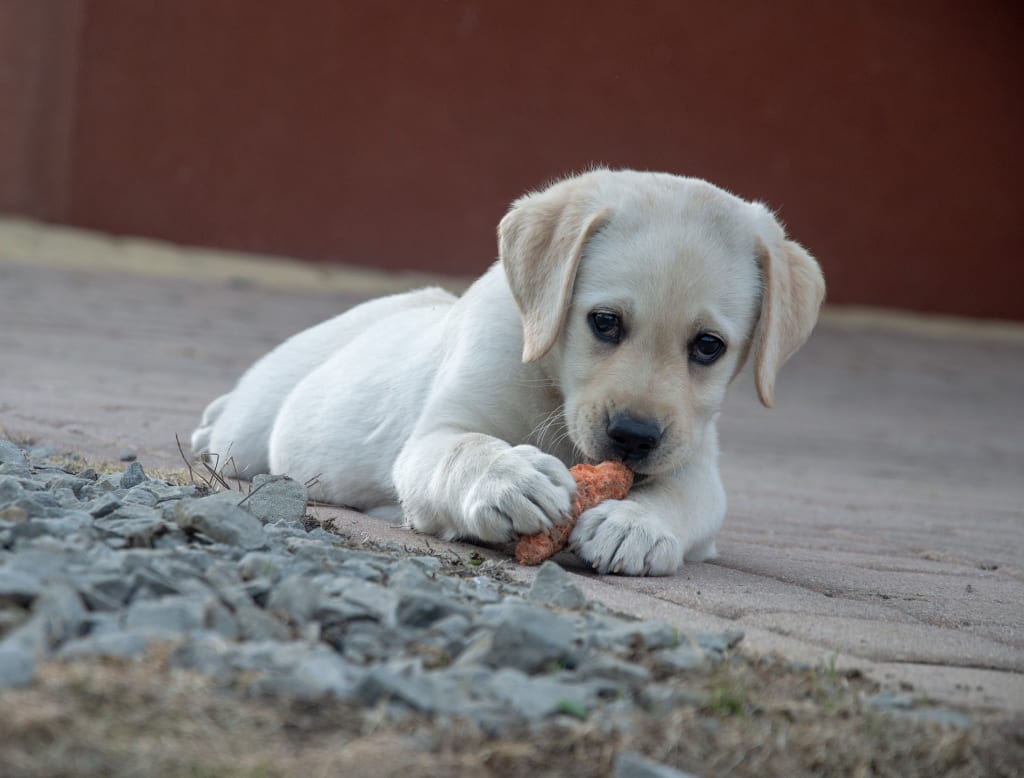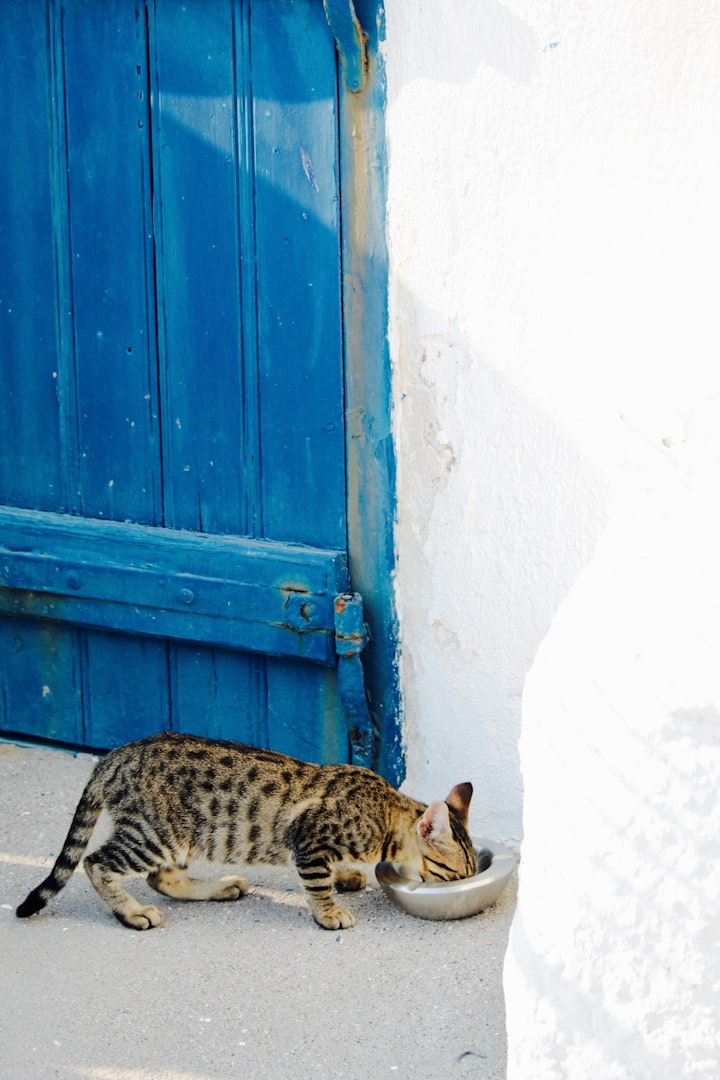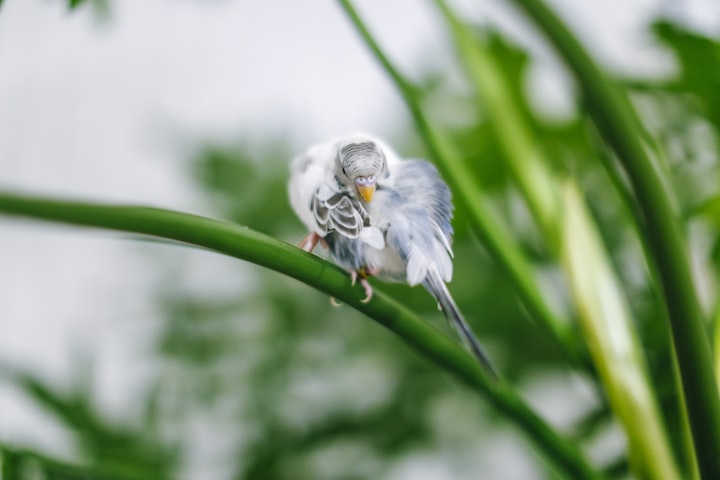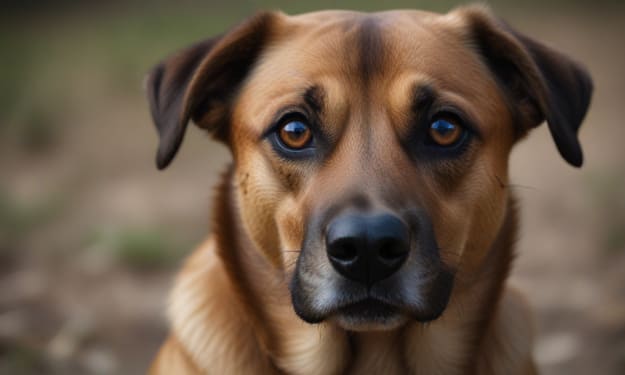Is It Fair To Your Dog and Cat To Go Meatless?
We can make the choice to alter our diets. But is that a fair decision to impose on our pets?

There are many vegan and vegetarian pet owners whose diets don't agree with the natural diets of their pets. Until recently, there have been few options for those who wanted to have their pets also go vegan or vegetarian, unless they wanted to design and make a diet by themselves. But now, there are many name-brand options for meat-free pet foods, even for primarily carnivorous animals like dogs and cats, including options by well-known brands like Ellen DeGeneres's HALO and Nature's Recipe. But is accessibility of meat-free pet food really a good thing?
It's no secret that our most common household companions, dogs and cats, have hunter ancestors. They are designed to eat meat. However, these animals will often eat the contents of prey animals' stomachs, thereby consuming fruits and veggies, and may also nibble on grasses on their own, particularly when they have upset stomachs. It's not uncommon to see diets also include fruits or veggies - not as main ingredients, but healthy supplements. It's good for their diets to include a certain amount of fruits and veggies - according to the AKC, apples are excellent sources of vitamins A and C, and are good snacks for senior dogs. Blueberries are rich in antioxidants, and carrots can help clean dogs' teeth. But is there a limit on how much of the diet should consist of fruit and veggies?

First off - why is meat important to our carnivorous pets' diets? Cats are an anomaly among many mammals in that they cannot produce taurine, an important component of their diet, themselves. Instead, cats have to absorb it through their diet - this is one of the biggest reasons that cat and dog diets cannot be fed interchangeably. Beef, fish, and poultry, common ingredients in most cat foods, are all important sources of taurine - sources that veggie replacements can't really imitate. Cats who do not receive enough taurine through their diet often suffer from a condition known as dilated cardiomyopathy (DCM). The ASPCA spoke out about dilated cardiomyopathy and its affects on felines. "In cats with DCM, the heart muscle becomes very thin and weak, preventing them from pumping blood and supplying oxygen to the body normally. This is a fatal disease if not corrected early on,” the ASPCA says. And even carefully formulated vegan diets may not be quite enough. “They can't digest plant material well, and they require essential nutrients that only meat can provide to them,” the ASPCA adds.

And as for dogs? While the issue of taurine does not apply, there are still other dietary concerns regarding meatless diets. An independent analysis of meat-free diets for pets in the US are nutritionally deficient despite claims of being fully nutritionally complete. Being carnivores, dogs have shorter intestine lengths - built to be compatible with quickly digestible food items high in protein (a characteristic of diets with high meat content). If more slow-to-digest items are consumed as the main components of the diet, it's unlikely that the food will process as needed - meaning your dog is not receiving enough nutrition. No matter how large a portion your dog is served, they will constantly be nutrient-deprived if they cannot process their diet.

Dogs also cannot synthesize vitamin D through their skin the way that humans can - meaning it must be obtained through the diet. Dogs can utilize two types of D vitamin, D2 and D3- and D3 can only be obtained through animal sources. Without enough vitamin D, dogs are at an increased risk of heart complications; they also cannot properly absorb calcium, leading to issues with bone health and development.
So what can you do if you want your meat-eating pets to stay healthy, but you don't want to buy products from poorly-treated animals in order to ensure their health?
- Buy from ethical brands. Many brands will happily advertise on their packaging if their meats come from farms that are cage-free, hormone-free, and so on. Research your potential brand and their ethics; some sites such as LeafScore have already made rankings of dog and cat foods based on their environmental friendliness and ethical treatment of farm animals.
- Make treats from home. Making a complete diet from home is generally best left to the professionals, but treats to supplement your pet's diet can be done from home - where you can completely control the product sources you use.
- Avoid leather animal products. It's common for collars, leashes, and so on to be made of leather. You can reduce your on impact on animals in this aspect of your pets' life by buying fabric or faux leather products. Some brands even offer recycled products or eco-friendly hemp products.
And if you can't bear to feed your pets other animals, consider the alternative - a naturally herbivorous pet. Most birds and small mammals can live a healthy and happy life without meat in the diet (although for some, insects are needed in the diet). If you can't stomach feeding meat, a budgie or guinea pig would be a good companion - that won't suffer from nutritional deficiencies.

It's not illegal to feed a vegan or vegetarian diet - it's ultimately your choice. But consider the ultimate health and wellness of your beloved pet. Is it fair to not feed meat products to avoid cruelty - and make your pet unwell as a byproduct?






Comments
There are no comments for this story
Be the first to respond and start the conversation.